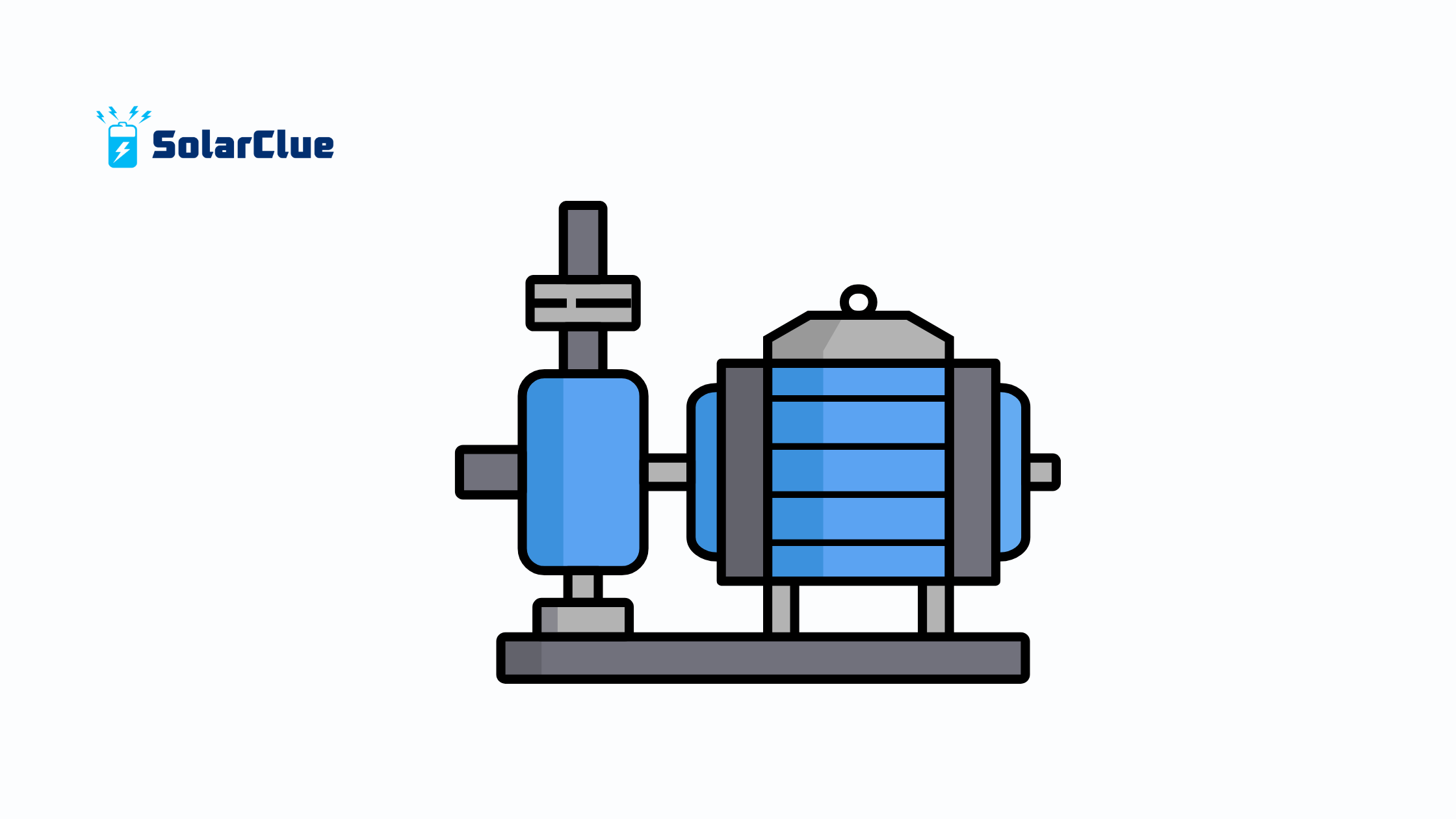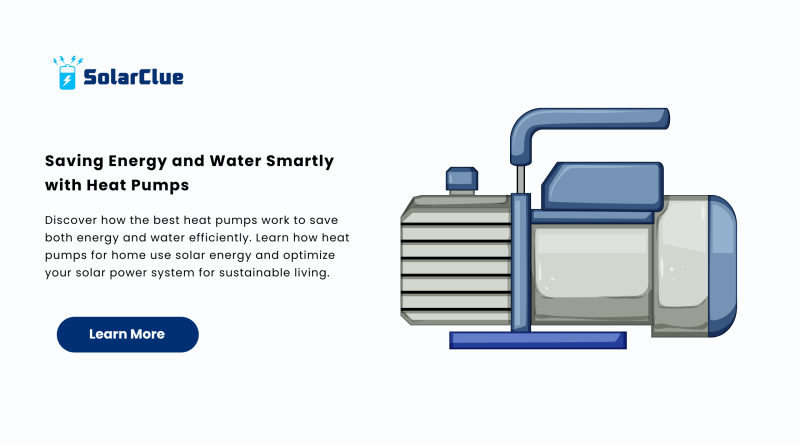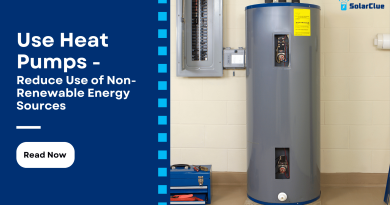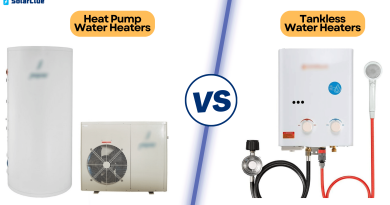Saving Energy and Water Smartly with Heat Pumps
In today’s world, where energy costs are rising and environmental concerns are growing, more homeowners are turning to smart, sustainable technologies. One such innovation making waves in the energy-efficient space is the heat pump. Designed to save both power and water, heat pumps offer a smarter alternative to traditional heating systems. And when paired with a solar power system, the savings can multiply.
Whether you’re building a new home or looking to upgrade your old water heater or heating system, understanding how heat pumps for home work and how they integrate with solar energy is the first step toward a greener lifestyle.
Table of Contents
- 1 What Are Heat Pumps and How Do They Work?
- 2 Why Heat Pumps Are the Smart Choice for Homes
- 3 Integration of Heat Pumps with Solar Energy
- 4 Benefits of Using Heat Pumps with a Solar Power System
- 5 Types of Heat Pumps for Home Use
- 6 Choosing the Best Heat Pumps for Your Home
- 7 Cost and Savings Analysis
- 8 Real-World Example
- 9 Environmental Benefits Beyond Cost
- 10 Future of Heat Pumps in India
- 11 FAQs
What Are Heat Pumps and How Do They Work?
A heat pump is a device that transfers heat from one place to another. Unlike traditional heating systems that generate heat, heat pumps extract warmth from the air, ground, or water and move it indoors for heating purposes. In cooling mode, they work in reverse by removing heat from indoors.
The best part? Heat pumps consume significantly less electricity compared to conventional heaters or geysers. Instead of generating heat through electricity, they move heat using a refrigerant cycle—similar to how your refrigerator works but in reverse.
Why Heat Pumps Are the Smart Choice for Homes
1. Energy Efficiency
Heat pumps are one of the most energy-efficient appliances for home heating and water heating. When powered by a solar power system, their energy use can become almost free. A typical heat pump can deliver 3-4 units of heat for every unit of electricity it consumes—this means over 300% efficiency!
2. Water Conservation
Heat pump water heaters reduce water wastage by maintaining a consistent temperature. Traditional systems often require draining or running excess water to get the desired heat, but heat pumps minimize this loss.
3. Reduced Carbon Footprint
By using less electricity and integrating with solar energy, heat pumps drastically reduce CO₂ emissions. If your goal is to move towards sustainable living, combining heat pumps with solar power systems is the way to go.
Integration of Heat Pumps with Solar Energy
Combining heat pumps with solar energy is not just a trend—it’s a game changer. When your solar power system generates clean energy during the day, that energy can power your heat pump for free. This synergy maximizes savings and minimizes grid dependency.
For example, using heat pumps for home water heating during daylight hours ensures you use your solar electricity directly, reducing the need for battery storage or grid power.
Benefits of Using Heat Pumps with a Solar Power System
-
Zero Running Cost: When powered by solar, the operating cost of heat pumps becomes negligible.
-
Increased Solar ROI: Using solar-generated electricity efficiently increases the return on your solar investment.
-
Backup Compatibility: Heat pumps can still work with backup energy systems or grid power during non-sunny days.
-
Smart Scheduling: Many modern heat pumps offer smart controls, so you can schedule operations during sunny hours.
Types of Heat Pumps for Home Use
Here are the main types of heat pumps that work well in residential settings:
1. Air Source Heat Pumps (ASHP)
These draw heat from the ambient air and are the most common type used for space and water heating.
2. Ground Source Heat Pumps (GSHP)
Also called geothermal pumps, these extract heat from the ground. They’re efficient but require more space and upfront investment.
3. Hybrid Heat Pumps
These systems combine a heat pump with a traditional boiler to ensure efficiency and reliability even in extreme weather.
4. Heat Pump Water Heaters
These are dedicated to heating water and are extremely popular in Indian homes for bathrooms and kitchens.

Choosing the Best Heat Pumps for Your Home
Selecting the best heat pumps involves evaluating your home’s energy needs, space, climate, and existing infrastructure. Here are a few points to consider:
-
Climate: Air source heat pumps work best in moderate climates.
-
Space Availability: Ground source heat pumps need more land.
-
Water Demand: Choose based on the number of users and water usage.
-
Integration with Solar: Look for models that work efficiently with your solar power system.
Cost and Savings Analysis
Although heat pumps might have a higher upfront cost compared to traditional geysers, they pay off quickly due to:
-
Lower monthly electricity bills
-
Government subsidies and incentives
-
Longer lifespan (10-15 years)
When powered by solar energy, the overall payback period of your heating system becomes even shorter, often within 2–4 years.
Real-World Example
Let’s say a household of four uses a heat pump water heater rated at 2 kWh per day. With a solar power system generating 6 kWh daily, not only can the heat pump run entirely on solar power, but the leftover electricity can power other appliances or be exported to the grid for credits.
Environmental Benefits Beyond Cost
Heat pumps reduce:
-
CO₂ emissions
-
Fossil fuel reliance
-
Noise pollution (many models operate quietly)
This makes them ideal for eco-conscious homeowners aiming for green certification or simply wanting to reduce their carbon footprint.
Future of Heat Pumps in India
With rising awareness and the push for renewable energy adoption, heat pumps for home use are becoming more mainstream in India. Government policies promoting solar energy adoption also indirectly encourage technologies like heat pumps that work efficiently with solar setups.
In the coming years, expect smarter, AI-enabled heat pumps that can predict weather patterns and optimize their operation to work hand-in-hand with solar systems.
FAQs
Q1. Are heat pumps suitable for all climates in India?
Yes, especially air source heat pumps, which perform well in most parts of India except extremely cold regions where ground-source pumps are more efficient.
Q2. Can I use a heat pump without solar energy?
Absolutely. Heat pumps work with regular electricity, but pairing them with solar energy maximizes savings and efficiency.
Q3. How much can I save by using a heat pump with solar?
You can reduce your heating-related electricity bills by up to 80–90%, depending on your usage and solar generation capacity.
Q4. Are heat pumps noisy?
No, modern heat pumps operate quietly and are suitable for indoor or outdoor installation.
Q5. What maintenance is required for heat pumps?
Minimal. Routine checks and filter cleaning are usually enough. Annual service is recommended.
If you’re looking to adopt the best heat pumps and harness the power of solar energy for your home, there’s never been a better time to make the switch. Not only will you enjoy reduced bills, but you’ll also contribute to a more sustainable planet. To explore our premium heat pump solutions and expert advice, visit solarclue.com or dive into more smart energy tips at blog.solarclue.com—your journey to smarter living starts now!




